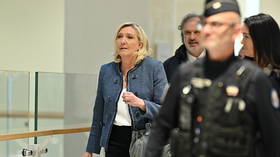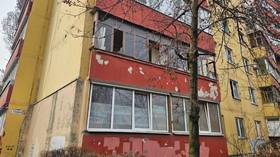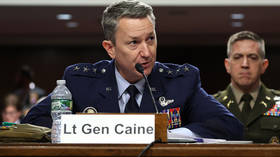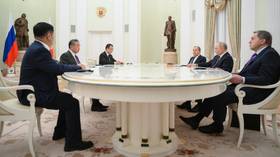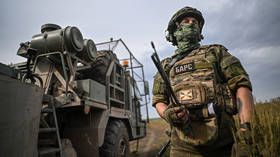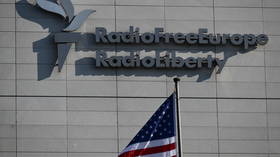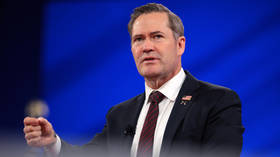By shutting out travelers immunized with Sputnik V, the EU is helping undermine Russia’s vaccine drive by feeding domestic doubts
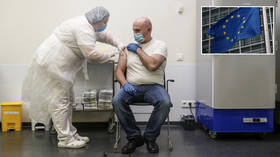
Russia has among the most effective domestic vaccines in use around the world, but now, faced with uncertainty over whether other countries will accept them for travel, many of its citizens are still hesitant to sign up for doses.
Prior to the outbreak of the pandemic last year, the number of Russians taking trips to the EU was rising rapidly, accounting for nearly one in four visas granted by countries in the Schengen free travel area. Since then, with governments across the world closing their borders in response to the spread of Covid-19, the number of overseas holidays and business visits has cratered, as popular destinations from the canals of Venice to the Eiffel Tower fell silent.
Now though, that is changing. While global tourism remains down by a colossal 83% compared to the months before the pandemic broke last year, a new United Nations report has found that the majority of experts are predicting a rebound within the coming year. A worldwide vaccination drive and the rise of certificates for those who have had jabs will, it is hoped, mean more international visitors waved through the arrivals gates without the need to quarantine for days at a time.
On Tuesday, the EU passed its long-awaited vaccine passports law, aimed at resurrecting the travel industry and giving hope to countless people waiting to see their families or travel for study and work. Residents of member states who have received doses of any of the jabs approved by the European Medicines Agency (EMA), the bloc’s central regulator, will be able to apply for certificates and travel freely once again. The scheme, Brussels says, “will enable us to travel more safely this summer… we reaffirm together that an open Europe prevails.”
Also on rt.com Moscow releases 2020 mortality stats: Excess death figures show Russia suffered more from Covid-19 than comparable Western nationsNow, on Friday, the EU announced it will lift travel restrictions for US residents, as well as those from Albania, Hong Kong, Lebanon, Macau, North Macedonia, Serbia and Taiwan. Residents of these countries, included on the so-called 'White List,' will be able to travel across much of the continent for tourism and leisure.
However, for citizens of third countries like Russia, much of the continent is still looking decidedly closed. Shut out of the system as non-EU members, little consideration is being given as to how to reopen the borders even for those who have had one of the country’s vaccines. Along with China’s Sinopharm, the Moscow-made Sputnik V jab is not included on the list of those that grant eligibility for a vaccine passport. That’s despite two member states, Hungary and Slovakia, deciding to jump the gun on a decision from the EMA and begin using the Russian formula as part of their nationwide immunization programs.
This effectively means that even those who receive the jab in those countries are also excluded from the scheme and unable to exercise the same rights to free travel as their fellow EU citizens for the time being. Given that well-documented evidence published in international medical journals like The Lancet has consistently shown Sputnik V to be safe and effective, the scientific basis for restricting travel for those who have received it appears shaky at best. Russia, for its part, has argued that political point-scoring in the West is costing lives, with a concerted campaign to delegitimize its formulas.
For many Russians, particularly young people who may feel the virus poses little personal risk for them, travel across the EU could become a deciding factor in whether to sign up for a jab. At present, those who are deciding whether to roll up their sleeves will be unable to know for sure that the vaccine will be accepted by foreign border officials. Additionally, given that there are no domestic restrictions on what vaccinated people can do, travel is one key area in which taking the jab could potentially restore individual liberties that the pandemic has stripped away.
Despite surging global demand for Sputnik V, which has now been authorized in 67 countries across the world, domestic uptake has been decidedly sluggish, with health experts and the Kremlin alike expressing disappointment that vaccine points often sit empty. After having been made available to all who want it for months now, there is still widespread reluctance. Speaking last week, President Vladimir Putin said that 18 million doses have been given, seeking to reassure Russians that “not a single serious case of complications” had occurred. “There is nothing to be afraid of here,” he insisted.
Also on rt.com Moscow mayor orders week of paid leave for workers & imposes curfew on nightlife in bid to control sharp rise in Covid-19 casesRegardless, concerns about immunization remain high. Research published in March by Switzerland-based investment giant Credit Suisse found that those living in Russia were more skeptical, on average, than those in any other country surveyed, including developing nations like China, India, and Thailand.
However, the growing calls for people to book appointments and receive their first dose have not averted a sharp resurgence in the rates of infections. After plateauing for months at around 8,000 cases a day, during which the rules for businesses and public spaces were generally eased, the official tally has ticked up steeply, reaching 14,000 positive tests on Monday alone. Experts have warned that a third wave is breaking, and the mayor of Moscow, Sergey Sobyanin, has imposed an 11pm curfew on the capital’s nightlife, as well as ordering a week-long paid holiday for most workers in a bid to keep people at home.
Countries like Israel, Britain, and the US, however, have finally begun relaxing tough public health rules, with large proportions of their populations vaccinated. It is clear that without a real drive to get people to sign up for the jab, Russia could languish in a state of shifting restrictions while other nations put the pandemic behind them. This would be a troubling outcome for the Kremlin, which has so far avoided significant domestic discontent over its handling of the situation. It would also be an ironic one, given Russia was the first nation anywhere in the world to approve a vaccine against the virus last summer.
Russia’s high rates of domestic vaccine skepticism have been fueled by a number of factors, including widely-shared online videos about purported side effects and swirling rumors about efficacy. At the same time, officials have done little by way of health education in order to increase public understanding about how vaccines work and the relative risk compared to contracting the virus. A number of doctors in the country have recently made direct appeals for people to be vaccinated, and urged authorities to simplify the criteria for getting a jab.
Many Russians, however, remain skeptical, with only around 1 in 10 having had both appointments so far. Western media coverage has consistently sought to undermine confidence in the jab, casting it as a shadowy tool of political influence rather than a genuine innovation in the field of human health. The home-grown formula’s reputation has been further undermined by the sluggish review of its data by the EMA, which has given little sense of urgency in approving its use despite some EU members expressing disquiet over the pace of the bloc’s vaccination program. Uncertainty about when, if ever, those who have been immunized with it might be eligible for expedited access to the EU is adding to the problem.
Also on rt.com Covid-19 has mutated so much in 18 months that proven treatments are often failing, says head of Moscow’s top virus hospitalThat dilemma is complicated further by the fact Russia is also using two other formulas that are less well-known on the international stage. EpiVacCorona and CoviVac, both also domestically developed vaccines, have also been approved for human use, with a growing body of evidence demonstrating their efficacy and safety. Despite that, they have not progressed through international regulatory reviews to anywhere near the same degree as the flagship Sputnik V. Even if the country’s best-known jab is eventually deemed sufficient by Western nations for travel, it is even more unclear when the others might be.
As well as driving hesitancy at home, the lack of clarity around the prospects for quarantine-free access to much of Europe will impair the bloc’s economic recovery. Russian tourists have been demonstrated to spend, on average, more than $1,600 on trips abroad – significantly more than other Europeans, who splash around $1,100.
Given that major tourist destinations like Paris have seen their visitor numbers fall to just 5% of their usual rate, the impact on businesses and local economies is just beginning to become clear. With significant public spending throughout the pandemic, Europe can ill-afford to put off its potential visitors. However, other destinations appear likely to poach high-spending tourists looking for exotic breaks.
China, where millions of Russians travelled each year before the pandemic, has already begun collaborations with Moscow on the production of Sputnik V, and it seems unlikely that political obstacles would stand in the way of restoring free movement for those who can prove they have antibodies. Likewise, Dubai and other Middle Eastern nations have become popular with those looking for a luxury break, with comparatively relaxed approaches to entry requirements.
While it is in the interests of the EU to make it clear to people living in countries like Russia that international travel will soon be back on the cards, the failure to do so is also having significant consequences at home. The perceived legitimacy of Russia’s vaccines will still be inextricably tied to its reception in the West, which has viewed Sputnik V almost exclusively through a one-sided political lens. Now, it is up to regulators and politicians in the West to decide whether they are content to keep fueling skepticism abroad, and potentially undermining efforts to save lives.
Think your friends would be interested? Share this story!



